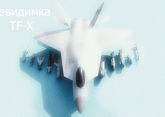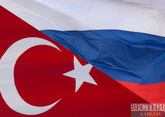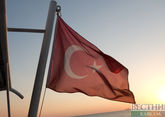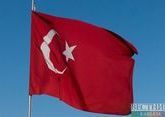The information on Turkey's purchase of the modern Russian anti-aircraft missile system S-400 caused a wide response in the German media. In general, the topic of deliveries of military products to Turkey is now quite relevant in the German political and media circles, impregnated with an open antagonism towards Erdogan’s Turkey. Today, German public, coined by politicians staying in the pre-election fervor, is actively reflecting on the complete cessation of the planned arms deliveries to Turkey due to the aggravated relations with Ankara.
Thereby, a sharp negative reaction to Turkish President Erdogan’s decision about a purchase of the S-400 came as no surprise. ‘’A buyer is not always right. When it comes to the air-to-air and surface-to-air missiles that Turkey is ordering from Vladimir Putin these days, it means he starts to lead the game, because the hardware is inevitably supplied with software", Die Welt writes. According to the author of the article, Turkey's placement of the Russian S-400s will allow the Russian side to look into the ‘intimate places’ of the Western defense alliance. To avoid this, the NATO bloc must "reduce its ties with the Turkish aviation to an absolute minimum," Die Welt concludes. However, for some reason the German publication keeps silent about the fact, that for many years the Russian S-300 missile systems have been defending the skies of the NATO member - Greece - and are fully integrated into the alliance's air defense. Strange as it may seem, so far in the Western media there have been no concerns about the ‘all-seeing eye’ of Vladimir Putin that can observe NATO's ‘intimate places’.
On the eve of the elections to the Bundestag, the German Social Democrats and Greens spun the topic of banning the arms supply to Ankara on the wave of the anti-Turkish public sentiments, thereby annoying the Christian-Democratic Union (CDU) headed by Angela Merkel. Merkel herself, as well as the leading CDU members, is quite skeptical about the idea of cessation of the military cooperation with Turkey - and there are reasons for this. First, Merkel, who will inevitably win elections, understands that eventually she will be forced to build relations with Recep Erdogan (the key point of the bilateral agenda is refugees). The second, the very idea of the cessation of the cooperation in the defense sphere is questionable in term of its practical implementation. Germany is bound by obligations within NATO and can not act independently on this issue. The third, Germany's rejection of the military cooperation with Turkey will become a ‘shot in the own leg’ from the perspective of German interests. For example, the German arms concern Rheinmetall plans to build a tank plant in Turkey with a 40-percent share stake. As the insider told the SWR, if Germans refuse, then French or British will quickly use an opportunity to occupy the niche voluntarily vacated by Germans. After all, there will always be someone to fill a vacancy.

Having decided to purchase the S-400 from Russia, Turkey showed its alliance partners the readiness to deepen relations with Moscow, at least until the country decides of its national interests on the part of the NATO allies. Recall that the newspaper Yeni Safak, close to the Turkish government, wrote in July this year that the US insisted on the purchase of the Patriot missile systems instead of the Russian S-400 on the extremely unfavorable conditions for Ankara - at a higher price and without the possibility of technology transfer, which traditionally requires the Turkish side. Moreover, Turkey has not forgotten the US arms supplies to the Syrian branch of the PKK - the Kurdish YPG self-defense groups. It is obvious that Ankara risked buying the Russian S-400s and going to a barely concealed confrontation with the US, is unlikely to react to today's threats of the German politicians. Thus, the cessation of the supply of German military products can hardly become a serious lever of pressure on Turkey. The technologically advanced Turkish military-industrial complex covers most of the needs of the Turkish army. Moreover, Germany is not in the list of the leading players at the Turkish military market (the last year the German military exports to Turkey amounted to less than $ 50 million). In the current situation, Russia is an absolute winner, having concluded an advantageous contract with Ankara - both from a commercial and political point of view.










